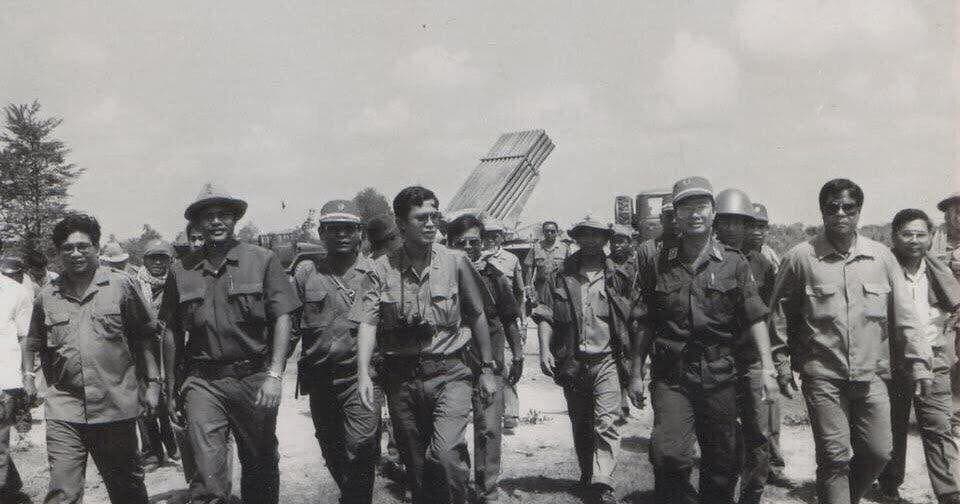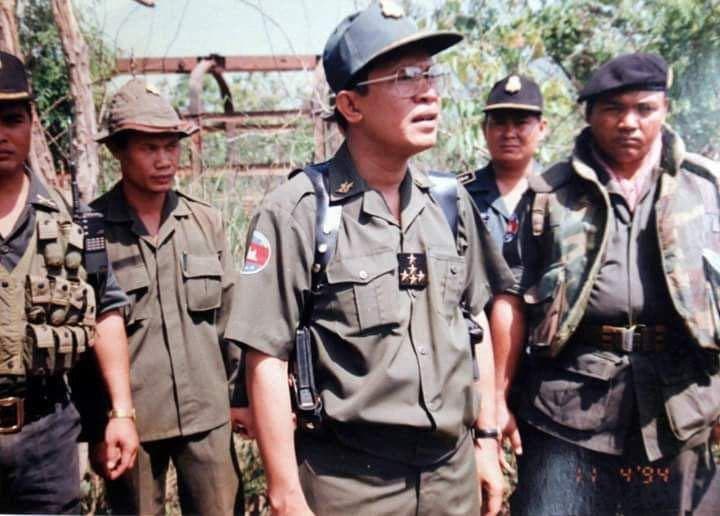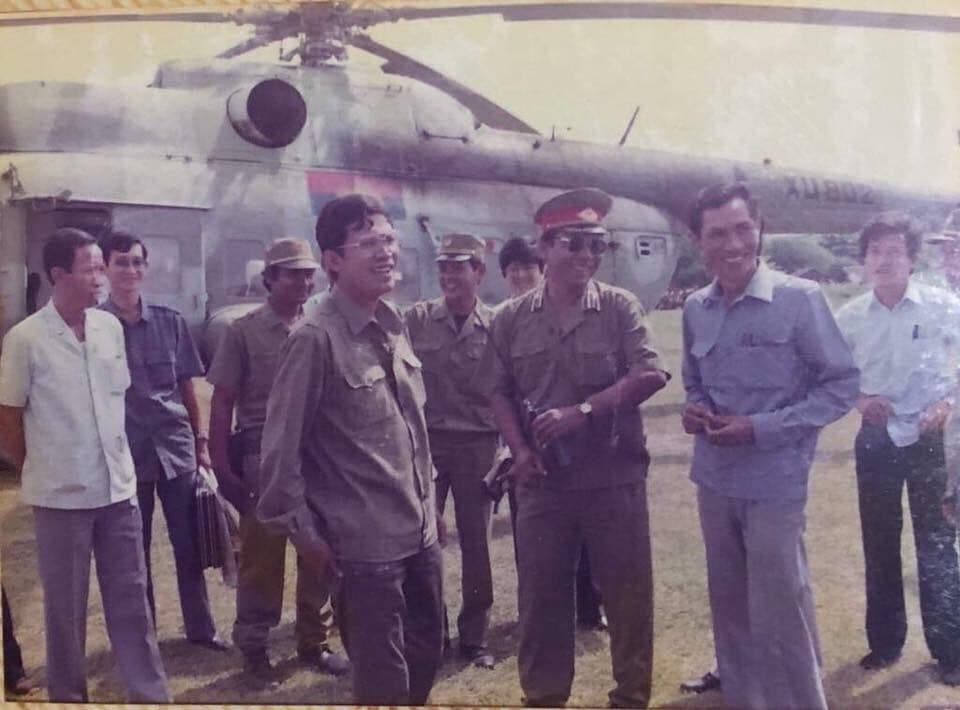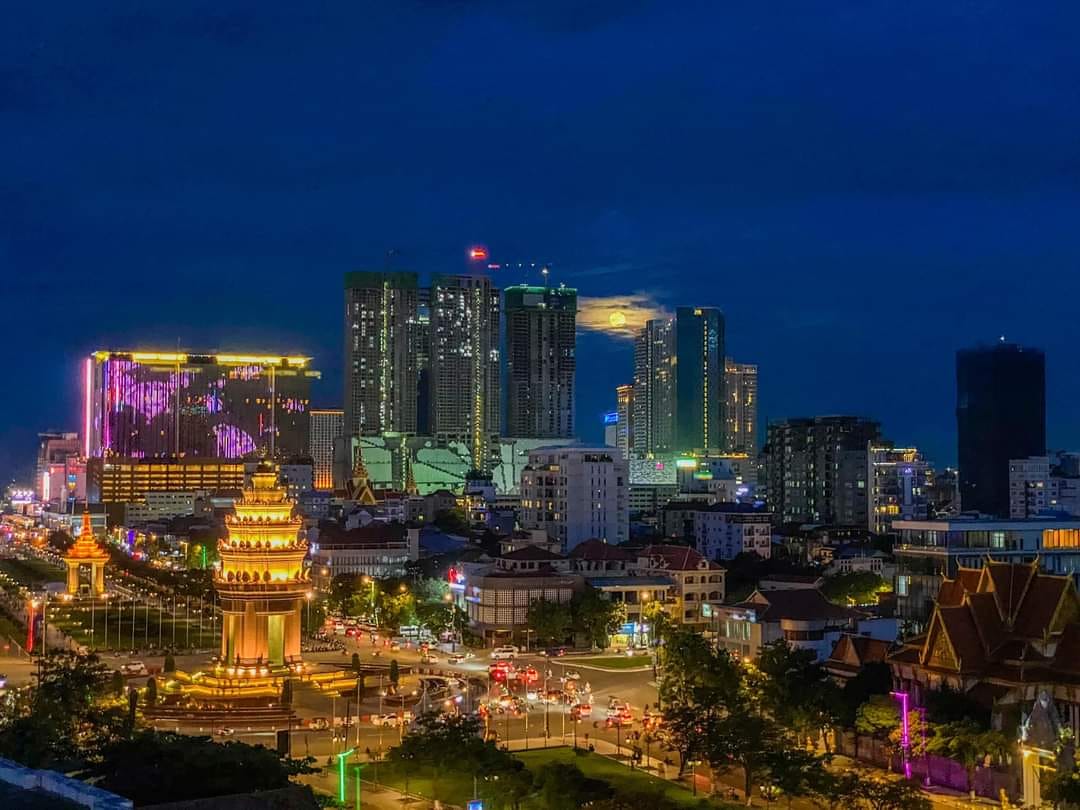PHNOM PENH: It has been 37 years since Prime Minister Hun Sen assumed his position as Prime Minister of Cambodia after the National Assembly elected the 33-year-old as Chairman of the Council of Ministers on January 14, 1985. He is one of the longest-serving Prime Ministers in the world, and his ability to hold this position for so long has been attributed to his loyalty to the monarchy.
Cambodia has gone through decades of division and civil war, and uniting the country under the same government has not always been as easy as it is now. It is even more difficult to maintain a stable situation and not turn back to war again. However, under the leadership of Prime Minister Hun Sen, it has been possible.
14 January 2022 marks the 37th anniversary of Prime Minister Hun Sen’s tenure in office as the leader of the Kingdom of Cambodia. He is one of the longest-serving Prime Ministers in the world, and his ability to hold this position for so long time has been attributed to his loyal and true followership of the monarchy.
While speaking at the inauguration ceremony of the Stung Trang-Kroch Chhmar Bridge on 23 November 2021, Prime Minister Hun Sen remarked that he had been able to maintain power for so long because of his high respect to the King, while former Prime Ministers of Cambodia, such as Prime Minister In Tam and Prime Minister Hang Thun Hak, did not hold the same level of success because they did not hold respect for the King and the Cambodian royal family.
He said, "This district (Stung Trang) has already formed three prime ministers: Prime Minister In Tam, Prime Minister Hang Thun Hak and Prime Minister Hun Sen. In Tam had the King’s support for the position of provincial governor of Kampong Cham to Battambang, then to as the Minister of Interior of His Majesty's generation. And then during the Lon Nol Regime, he joined their side to overthrow the King. And Hang Thun Hak was the same. But Hun Sen is not like them! That's why Hun Sen is able to rule for a long time because I have no betrayal! They betrayed the Kings and after that the Kings called the people to the forests and then I went! So, I will not be cursed by God.”
It has been 37 years since the National Assembly of Cambodia elected the then 33-year-old Chairman of the Council of Ministers to become Prime Minister on 14 January 1985. Prime Minister Hun Sen served as the Minister of Foreign Affairs for six years, between 1979-1985, and then as Acting Prime Minister for three months after Chan Si left to the Soviet Union for medical treatment.
The Prime Minister has received the support of both party and state leaders. His inauguration as Prime Minister came at a time when the country was suffering from severe food shortages due to floods and droughts, and was plagued by border fires and economic blockades from neighboring countries. At the time Prime Minister Hun Sen told the National Assembly to not let any people die of starvation and have their deaths be unresolved.
On the one hand, protect the people, on the other hand, prevent the Khmer Rouge from returning, there were many tasks needed to be achieved, both diplomacy and negotiation, to bring peace to Cambodia. In order to achieve these aims Prime Minister Hun Sen decided to negotiate and form an alliance with King Norodom Sihanouk.
Two years after Prime Minister Hun Sen assumed his role in office, he went to hold talks with King Norodom Sihanouk over the disputed Cambodian parties, and in order to continue negotiations until an agreement could be reached. On 23 October 1991, as a result of the talks between Prime Minister Hun Sen and King Norodom Sihanouk, the Paris Agreement was established, which led to the election and the establishment of the second Kingdom of Cambodia in 1993.
After the 1993 election, Prime Minister Hun Sen was elected by the National Assembly as the second Prime Minister to work with the first Prime Minister, the late Prince Norodom Ranariddh. Although Prime Minister Hun Sen was the second Prime Minister, a majority of the work fell on him to deal with, including protecting the people from the Khmer Rouge.
Prime Minister Hun Sen decided to set out a win-win policy to end the Khmer Rouge and finally lead Cambodia to become a fully independent, united territory in 1996. The roof of monarchy and one government was established after more than 500 years of Cambodian history. Due to the success of the Prime Minister's leadership, the Cambodian people have voted for his party, the Cambodian People’s Party (CPP), at every election since 1998.
According to the latest UN assessment, for the first time in the history of Cambodia, the country has been able to meet conditions that free it from the status of ‘least developed country’. The goal is to become a middle-income country by 2030 and a high-income country by 2050. Furthermore, data from the World Bank shows that Cambodia’s GDP per capita increased from $254 in 1993 to more than $1,543 in 2020.
Under the leadership of Prime Minister Hun Sen, Cambodia, which was once in ashes from the flames of war, has become a land of peace and development. People's lives have gradually improved and the country's image has become more well-known on the international stage. All of this has been considered a difficult achievement by the Prime Minister, who has said he is determined to protect this achievement for the benefit of the Cambodian people in the future.
Speaking at the inauguration ceremony of the Stung Trang-Krouch Chhma bridge on 23 November 2021, Prime Minister Hun Sen said he would continue to hold the position of Prime Minister for longer in order to maintain stability and peace in the country. He said, "No! This time I confirm that no matter what the price, Hun Sen cannot bow down to accept any pressure that leads to instability and loss of peace in the country. Hun Sen declares in my hometown again, how long I stay in the position of Prime Minister is up to me. As long as the people vote for me, I will always do it."

























